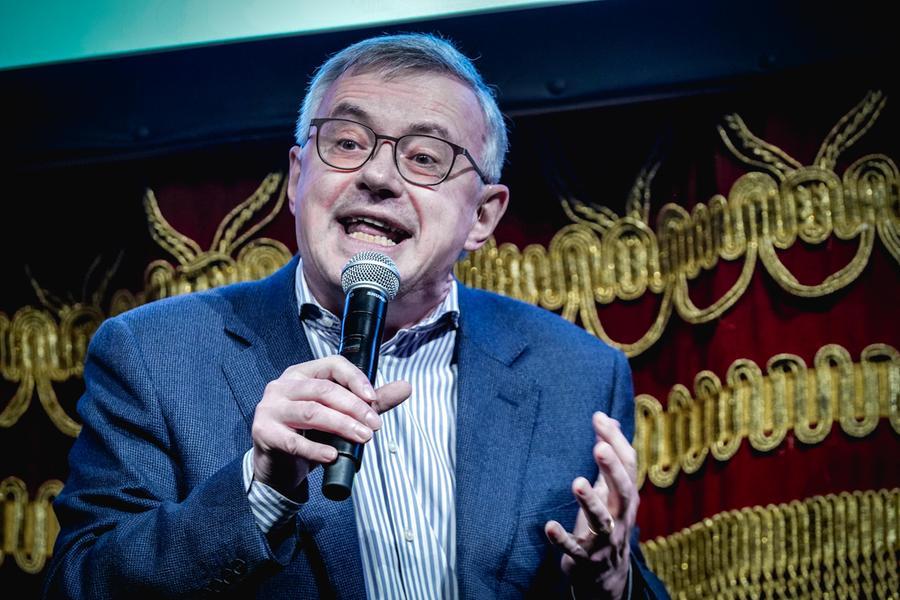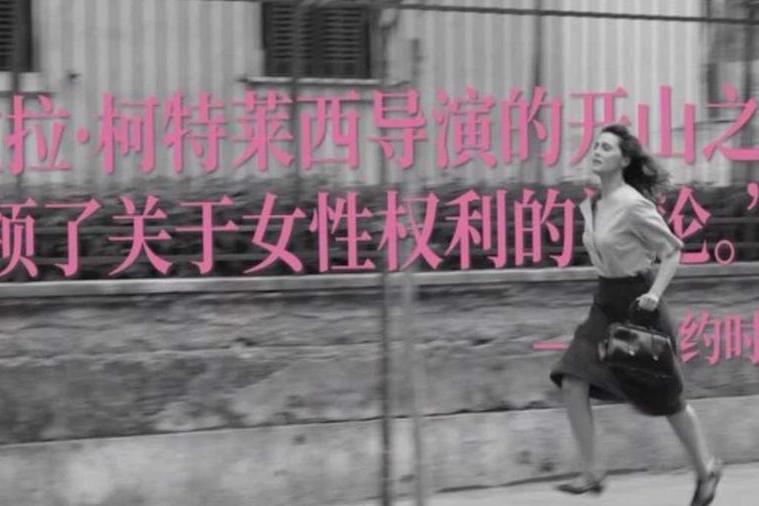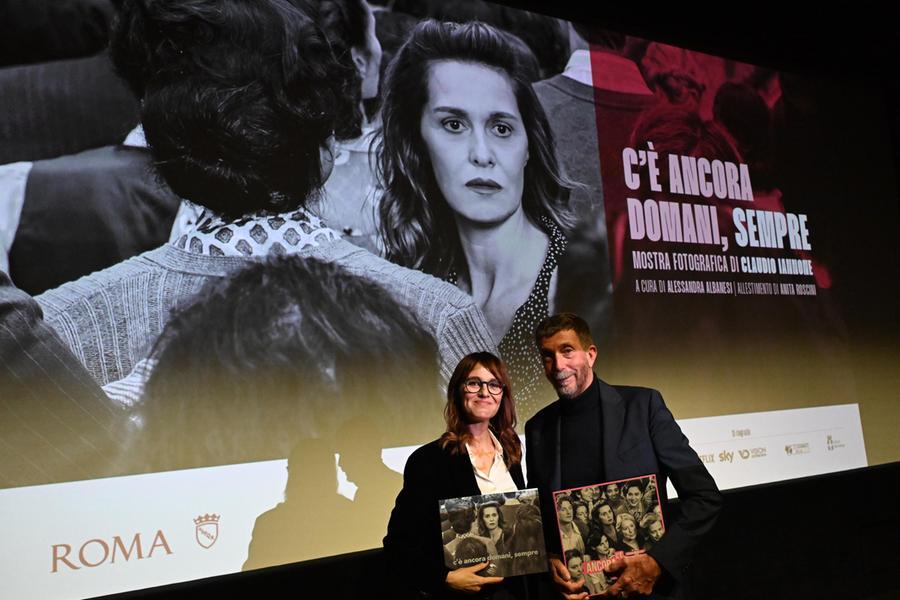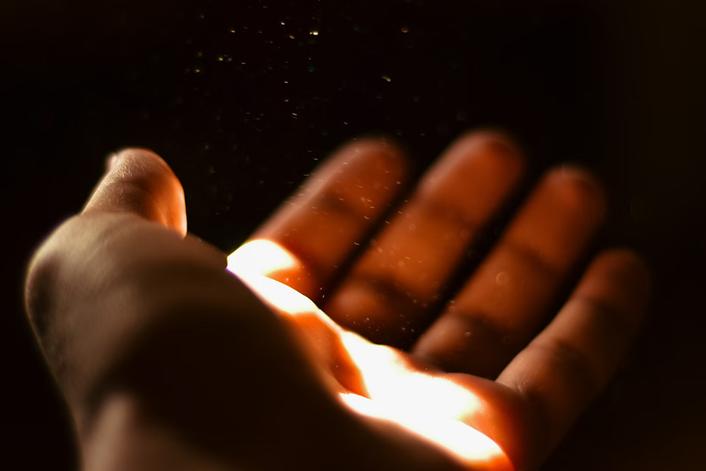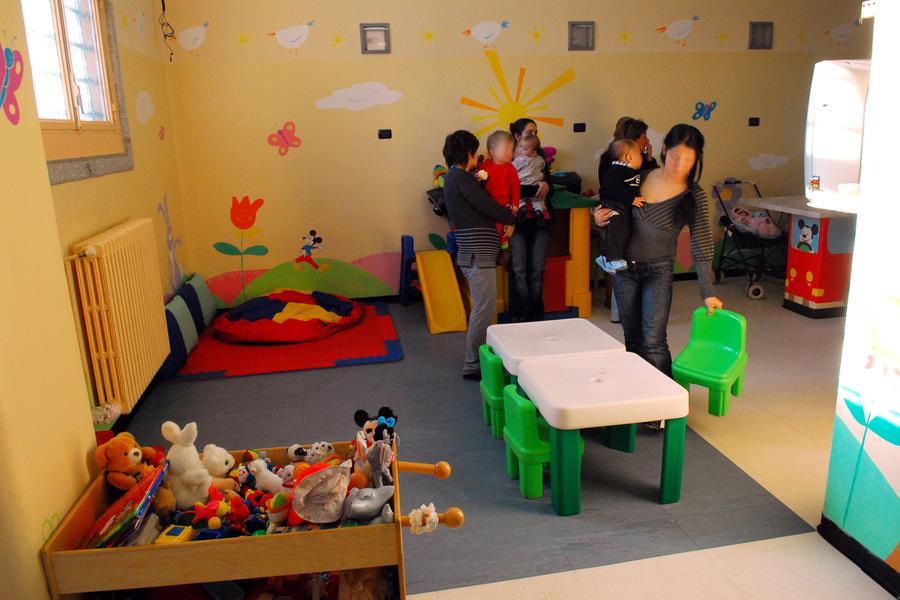The most evoked word is silence. To know how to do it first of all – a skill that is not to be taken for granted – and to be safeguarded, especially during the night.
At the end of the stone staircase I am welcomed by a statue of Saint Benedict and the two-armed cross planted on the three hills that symbolize both the Trinity and the religious vows, all dominated by the three letters of PAX. It is the peace of the heart, the one that reconciles with oneself and with others and which – Benedict assures – will reach anyone who experiences what his Rule proposes which he dictated in the year 534 and which within these walls is what regulates the life of sixty-five cloistered nuns – the eldest is 85 years old, the youngest is 27 – under the guidance of her mother abbess, Maria Grazia Girolimettowhich in 2018 took over the baton from Anna Maria Cànopiwho in 1973, together with six sisters, arrived onSan Giulio Island, on Lake Orta, when there was no drinking water, electricity or heating and on the ruins of the ancient episcopal seminary of the diocese of Novara he founded the Mater Ecclesiae Abbey who will host me for 24 hours.
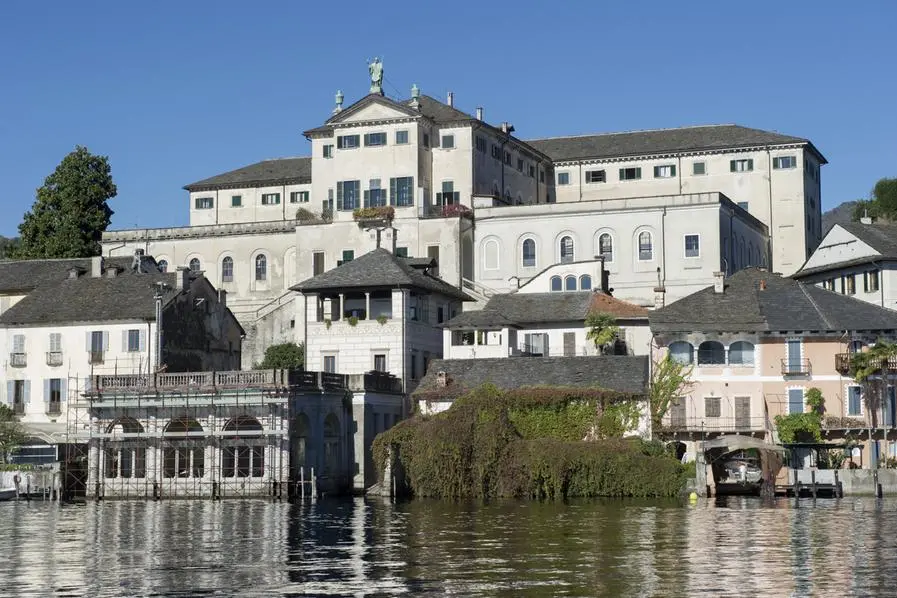
From the guest room, which is supported by the free offerings of the guests, you can see the picturesque village of Orta full of tourists, especially foreigners, the comings and goings of the mini ferries that go back and forth to the island and, looking up, the whitewashed peak of Mottarone.
Inside, the bed with a finely embroidered blanket, a table with a lamp, the Psalter (the book of Psalms) and the Missal to be used for individual prayer. Before entering the room, the nun at the concierge gave me, in addition to the keys, a piece of paper with the times to be respected to enter community life. The gaze immediately falls on Matins which is celebrated at 4.50. This means that I will have to set the alarm for 4.20, like the nuns.
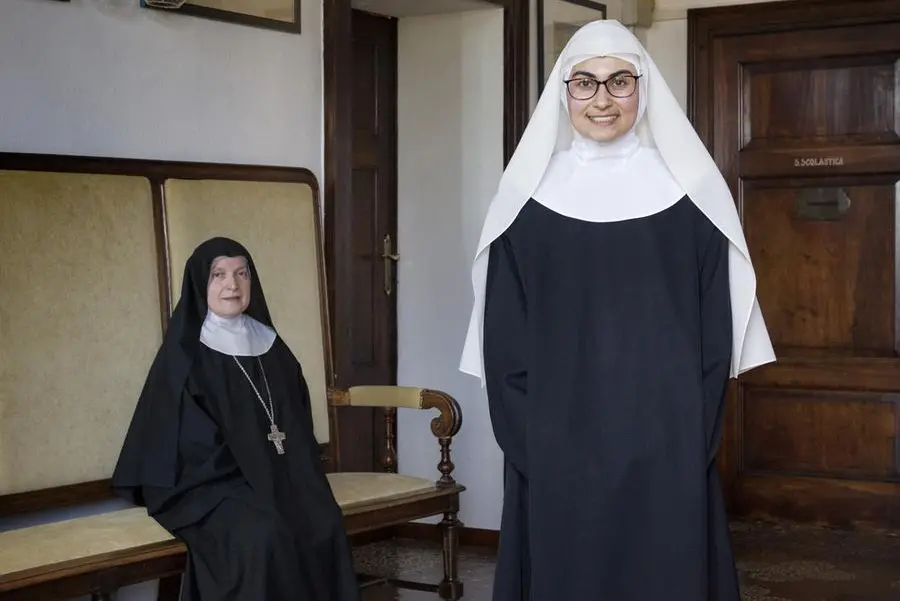

The chapel is located on the second floor. My place is indicated by a handwritten name sign. Together with me, in addition to those passing through for the day, there are four other guests including a 32 year old girl in discernment who comes from Veneto and an engineer from Split who has returned after spending three years of training, interrupted due to family reasons.
Separating the choir, where the nuns sit in order of seniority, there is a wooden grate, much less heavy and invasive than I thought. «It only indicates the sacred space of those consecrated to the Lord. The outside world, and the hearts of men, have many other grates and walls that divide”, Mother Girolimetto tells me with a smile. He’s been here thirty-six years. Around his neck he has a silver pectoral cross that every now and then, as we talk, he touches delicately. I ask her if the choice of seclusion is not, in reality, an escape from the world and its toil: «On the contrary», she replies, «we have not chosen to escape but to stay, to be a garrison, a place from which to look at humanity with the gaze of God. The monastery is like a privileged observatory from which we can grasp the fatigue, restlessness and suffering of the world, taking them on in prayer and compassion. We are not outside the world, but in its heart. Ours is a life of intercession, a bridge between heaven and earth».
The ringing of the bell invites the nuns to gather for the Sixth Hour, at 12.30, before lunch which is served in the refectory reserved for us guests. From the intercom comes the voice of a sister who reads selected passages of Scripture and reflections on monastic spirituality. At the table the food is simple, tasty and plentiful. For those who wish, there is also a bottle of wine.


I ask the mother abbess about the difficulties in governing such a large community: «Living together is a continuous school: you have to overcome your pride, open yourself to forgiveness and acceptance. Living in common requires letting a part of oneself die to make room for the other. But this is true in every human relationship, even at work, as a couple and in the family.”
Today vocations often come from adult women, with sentimental, study and work experiences behind them. Here most of the nuns have degrees: there are teachers, managers, lawyers, architects, doctors and nurses. The average age is around 36 years. Currently the formation period before taking the final vows lasts nine years while in the past it was shorter: «Faithfulness is scary, it is right that there is a longer time for discernment», says Mother Girolimetto, «perseverance is a grace that is learned over time».
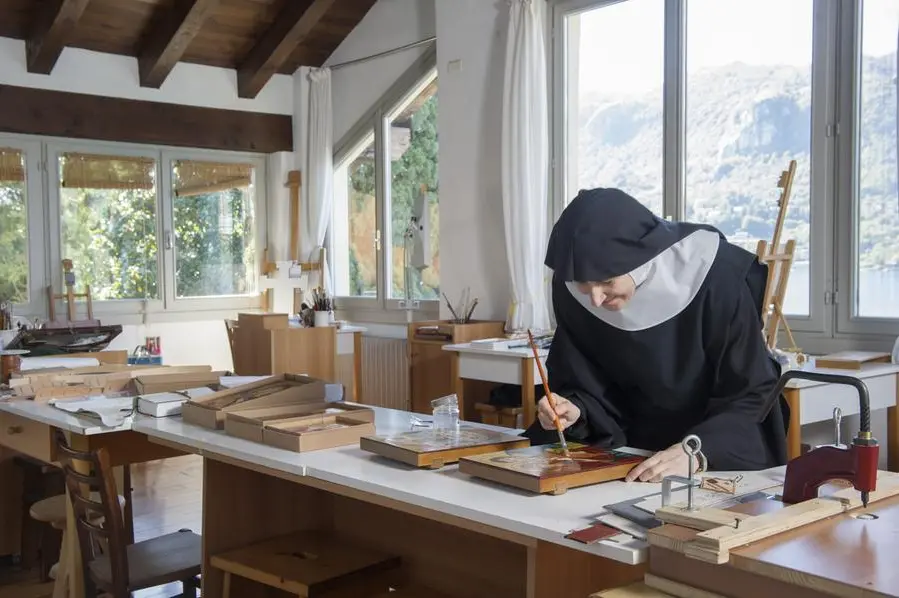

Sister Maria Maura, 62 years old, here for 39, from Biella, she is the manager of the iconography laboratory: «Before entering the monastery I had lost my faith», she says, «being young in the Seventies meant getting involved in politics and contesting everything. I did it too. I had many anarchist friends and supporters of the Red Brigades. At a certain point I asked myself that if God was there, everything, even the protests, made sense. If it wasn’t there, nothing made sense. When I arrived here I was 19 years old and I was skeptical: “Let’s see if God exists or if these nuns are pretending.” I was wrong. The presence of God was cut with a knife. And in this community I found my home.”
All the sisters wear black veils, nine have white ones. They are the novices, who have not yet professed their definitive vows. At the moment of dressing, each of them receives, on a stone, a new name, chosen in secret by the mother abbess in prayer and under the guidance of the Holy Spirit, as the Apocalypse recalls: “And I will give him a white stone, and on the stone is written a new name that no one knows except he who receives it”. The novice’s hair is then cut: “It is the sign of detachment from the old self”, explains the mother abbess, “the hair is offered to God and covered by the veil, a sign of custody and consecration”.


Sister Maria Bianca she is one of the latest arrivals, she joined two years ago at the age of 25, after graduating in Primary Education Sciences and a job as a teacher in Reggio Emilia: «The first time I came here I literally ran away and for three years I was no longer seen or heard from», she tells me, «but precisely in those three years I understood that this was my path. It’s not about giving up something but about choosing. As happens in a relationship where you don’t say “I renounce everyone else” but “I choose you”». I ask her what a Rule that is lost in the mists of time has to say to the heart of a twenty-year-old today: «The heart of man does not change: fears, limits, fragilities remain the same as always. The Benedictine Rule teaches how to live all this with wisdom and discipline and, above all, in the light of prayer.”
In the monastery there is no TV or radio, no one can have a cell phone. Internet access is limited to essential things, such as managing requests for hospitality from pilgrims and the very numerous requests for prayer. «Although in May», says Mother Girolimetto, «we connected to meet the new Pope after the election in the Conclave». The newspapers, Future And L’Osservatore Romanothey arrive by post. In the evening, after dinner, a nun takes it upon herself to inform the other sisters about the events of the day on which to focus their prayers.
In addition to the iconography laboratory, there is an embroidery, weaving and restoration of ancient fabrics laboratory, opened in 1984, the same year the current manager was born, Sister Maria Aurorawho joined here in 2009, at 25 years old. «This laboratory is also a metaphor of our spiritual journey», he explains, «the Lord restores us like these fabrics that are entrusted to us. It doesn’t throw anything away from us but, over time, consolidates and puts everything back in place».
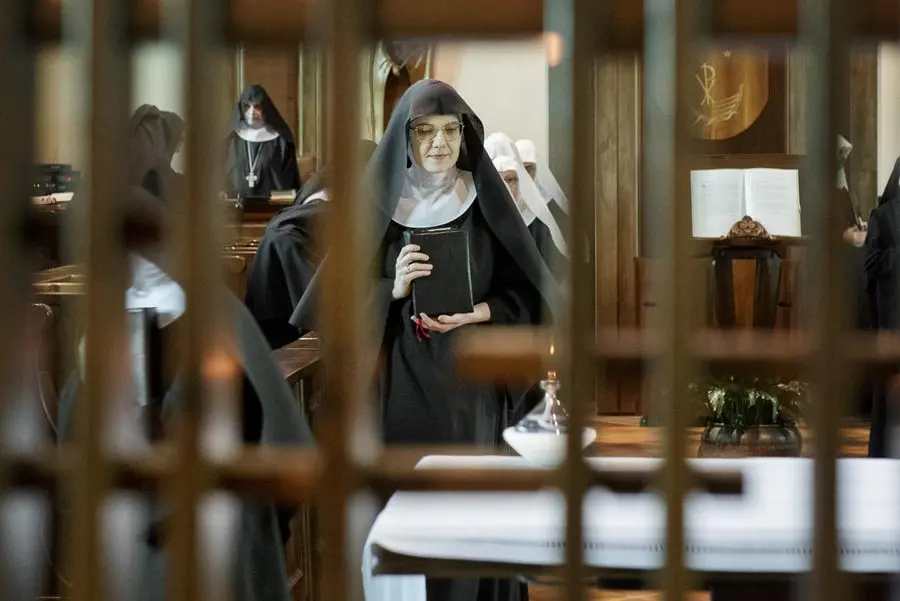

After Vespers, the Rosary is prayed for peace, as Leo XIV asked us to do. The last prayer of the day, at 8.45pm, is Compline and the silence of the evening – almost amplified on this island where there is only one road and no cars or scooters – is pierced only by the sound of the bell that calls the nuns together.
There is an ancient saying that “Benedictines serve the Lord like lords”. An elegance that permeates not only hospitality but also prayer, where time, splendor, singing, attention to detail are not measured: nothing is more important thanopus Deiof that work of God which is, precisely, a prayer capable of overlooking the Mystery and offering a sort of foretaste of paradise on earth.
My time in seclusion is over. It’s time to return to Milan. I kept my cell phone off the entire time. The Mother Abbess bids me farewell with a smile: «It often happens that those who come to visit us tell me: “We thought you were imprisoned but you are freer than us”».
Perhaps, I think as the boat takes me back towards Orta and the abbey fades into the autumn mist, it is precisely that light, rare and precious, that I saw in the eyes of the nuns that restores who knocks here with a heart in turmoil, in search or because exhausted by the heavy burden of life.
These women embody a vocation for a few, of course, but which has a lot to say, and teach, to us who have retained, if anything, only the part of the monastic couplet. workcompletely forgetting theNow.





